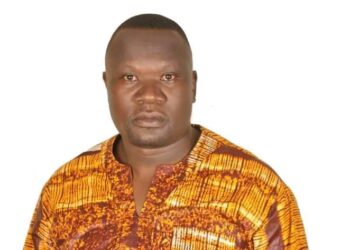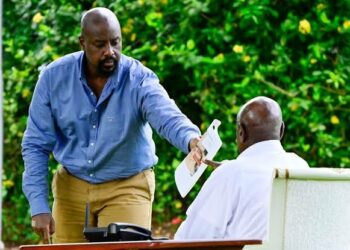By Norbert Mao
Let me start with the obvious. Impunity by any other name is still impunity. Taking any human life should be a very last resort. Last week, Arnold Ainebyona Mugisha, a promising young entrepreneur was killed in a hard to explain but easy to understand incident.
Arnold reportedly came out of the supermarket with a trolley laden with his shopping. After offloading his shopping into his car, he pushed the empty trolley away. The trolley sped down the slope of the paved parking lot and hit a nearby car. The impact damaged the car. A security guard confronted the young man who was about to drive away and told him to wait for the owner of the damaged car and accept responsibility for the damage. The young man refused, entered his car and started driving away. The security card tried to block him but the young man didn’t stop. He knocked the guard, injuring his leg. Another security guard watching the fray joined in. He picked up his gun and shot at the car killing the young man.
During the funeral service, at All Saints Cathedral, Arnold’s blamed tribalism saying his son was killed because he is a Munyankole. The presiding priest blamed anger. This incident brings to mind the Akena/Kanyamunyu incident. Mathew Kanyamunyu now faces murder charges for the killing of Akena. But the elephant in the room is impunity and abuse of power. People with power based on position, wealth or social status have an arrogant belief that they are untouchable. They have a reckless sense of entitlement.
In Uganda, impunity has historically been given an ethnic face by its victims. During the Amin regime, impunity was West Nilized. In the Obote and Okello regimes it was Acholinized. Now in the Museveni regime, impunity is being Ankolenized. It does not matter what the actual tribe of the perpetrator is, impunity is linked to the dominant group that projects the most power.
In the Amin regime some of the most notorious operatives of the infamous State Research Bureau were not from West Nile. In the Obote regime names like Musa Ssebirumbi and Luwuliza Kirunda evoked fear but they were not from Acholi or Lango. In Museveni’s regime some of the most brutal individuals are not Banyankole or even from Western Uganda, but that has not stopped their impunity from being Ankolenized.
Underneath the geographical matrix of impunity lurks our history of turmoil and historical injustices crying out for redress. But to reduce everything to tribalism would be an oversimplification. We have to go beyond tribes and look at the economic stratification of our society and the geography of that stratification. We have to look at the imbalances in the distribution of opportunities for advancement.
The story is told of a very fat man who rebuked an emaciated man saying he would disgrace the nation by making visitors think there’s a famine in the land. The emaciated man simply answered that by looking at the excess weight of the fat man, the visitor would immediately know the cause of the famine.
As Uganda’s economy grows and the glitter of modernity dots our urban centres, there are millions of citizens who are being left behind. Incidentally, these poor citizens are from all parts of Uganda. But poverty, like wealth, has a geographical concentration. Some parts of Uganda have a higher concentration of the poor that others.
The incident which led to Arnold’s death is thus symptomatic of a national crisis. Uganda is hurting as a nation and is badly in need of healing. We can no longer postpone the difficult conversation about the ties that bind us together as a country and why they are at their weakest today.
We cannot ignore the volcanic rage that is simmering under the icecap we call stability. The only way to avoid a genocide is to begin the search for common ground in earnest. It is never too late for a country to have a new beginning based on truth-telling, reconciliation and justice. The alternative is unthinkable chaos and mutual destruction.
Do you have a story in your community or an opinion to share with us: Email us at editorial@watchdoguganda.com











